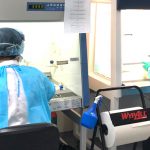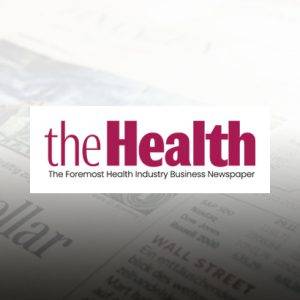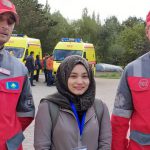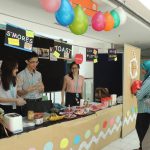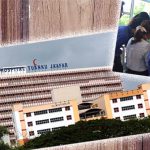SEAMEO RECFON and the Centre for Transformative Nutrition and Health of the International Medical University (IMU) of Malaysia launched the first Online Training on Healthy School Canteen in Southeast Asia on 12 July 2021 for school heads, teachers and canteen operators in the region.
| Participants of Online Training on Healthy School Canteen in Southeast Asia | |||
|---|---|---|---|
| 68 (sixty-eight) participants from | 23 primary and secondary schools of | ||
| 7 (seven) SEAMEO Member Countries | |||
| Brunei | Cambodia | Lao PDR | Malaysia |
| Myanmar | Philippines | Indonesia | |
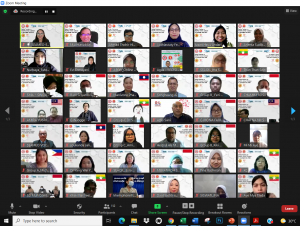
The 7-week course, which will culminate on 26 August 2021, generally aims to improve the knowledge and basic skills of the participants on food quality and implementation of healthy school canteen. In the long run, this initiative envisions to transform school canteens in the region to be reputable food establishments that contribute to the alleviation of foodborne illnesses and improving nutrition status of students.
During the opening programme, RECFON Director Prof Muchtaruddin Mansyur welcomed and congratulated the participants for joining the training. He acknowledged the valuable contribution of IMU in developing and organising the course, as well as the support from the Ministry of Education, Culture, Research and Technology of Indonesia and the SEAMEO Secretariat.
He emphasised the important role of school canteen as a key component in RECFON’s Nutrition Goes to School (NGTS) Program towards forming healthy eating habits among children while at school. He encouraged the training participants to apply the knowledge and experiences they would gain during the training to improve their school canteens and become role models in their countries.
On behalf of IMU, Dr Yang Wai Yew, Head of Department for Nutrition and Dietetics, expressed her appreciation to SEAMEO RECFON for inviting IMU to collaborate in this training course. “This is a very important initiative, as the health of nations begins at schools, to instill the right eating habits through foods served at the canteen,” she said.
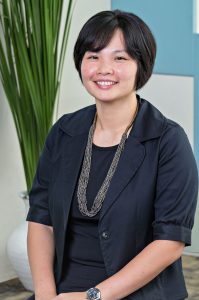
She also recognised that a healthy school canteen is one of the most efficient means to prevent and reduce serious health problems among students and bridge education achievement gap. “School-aged children are leaders of tomorrow, and schools are the best platform to inculcate healthy lifestyles including good eating habits,” she added.
The training was officially opened by SEAMEO Secretariat Director, Dr Ethel Agnes Pascua Valenzuela. Recognising the malnutrition status among Southeast Asian children due to unhealthy dietary behaviours, she stressed, in her keynote speech, the relevance of school canteen in improving student’s eating and sanitation habits and boosting their resiliency to diseases by providing healthy and sanitized food choices. She commended SEAMEO RECFON for organising the training as well as forging collaborations with SEAMEO Centres in five SEAMEO member countries to produce a reference material on Healthy School Canteen Effective Policies and Best Practices to facilitate teaching-learning of teachers and students on this matter.
“I wish that after this training, the participants would become agents of transformation in their respective schools to improve their school canteen services for better health and nutrition of their students,” she concluded.
The training consists of seven sessions on the following topics:
- Balanced nutrition and meal guide;
- Safe food preparation in school canteen;
- Introduction to Halal;
- Healthier options of food preparation; and
- Implementation and management of healthy school canteen.
Both synchronous and asynchonous methods will be used to deliver the sessions. Each school team is expected to turn in an action plan to improve their school canteen as a major requirement of completing the course.
| The training team includes | |
|---|---|
| Dr Judhiastuty Februhartanty (SEAMEO RECFON) | Dr Dwi Nastiti Iswarawanti (SEAMEO RECFON) |
| Evi Ermayani, MSc (SEAMEO RECFON) | Arienta Sudibya, MSc (SEAMEO RECFON) |
| in collaboration with | |
| Dr Ng Ai Kah (IMU) | Pn Mary Easaw, MSc (IMU). |





